2013 Induction Ceremony, Awards Presentation and Reception
The University of Toledo - Health Science Campus
Howard L. Collier Building
April 13, 2013
7:30 – 9:30 pm
2013 Recipients:
Richard Paat, MD
Maumee, Ohio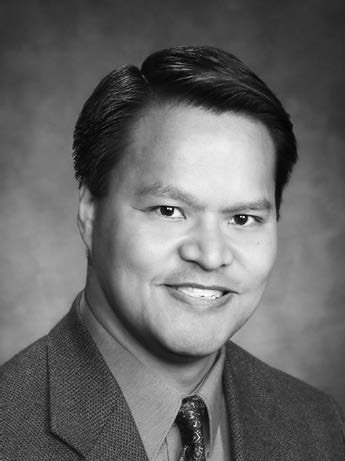
For 20 years, Dr. Richard Paat's commitment to improving the human condition has eased
suffering in the Philippines, Guatemala, Honduras, Indonesia, Tanzania and Haiti.
As chairman of Medical Missions for the Filipino Association of Toledo's Special Commission
on Education and Relief, Dr. Paat now brings five volunteer medical teams to those
countries each year. He has led 51 medical missions and disaster relief teams that
have treated more than 79,500 patients around the world.
In 2010, Dr. Paat brought a medical team to Haiti to care for earthquake victims.
He's also organized emergency medical relief teams to ease suffering in Honduras after
Hurricane Mitch, in Indonesia after a tsunami, and in Biloxi, Miss., after Hurricane
Katrina. Clinical professor of internal medicine at The University of Toledo, Dr.
Paat also serves as the volunteer medical director for International Services of Hope,
a faith-based non-governmental organization that provides free surgical care for indigent
children from foreign countries.
A former chief of staff at St. Luke's Hospital in Maumee, Ohio, Dr. Paat has practiced
internal medicine since 1989 with his recently retired father, Dr. Antonio Paat. The
recipient of a two-year $115,000 grant from the Bill and Melinda Gates Foundation to implement a
health promoter training program in Tanzania, he was also recently appointed by Gov.
John Kasich to serve on the Asian-American Pacific Islander Advisory Council for the State of
Ohio where he chairs its health committee.
In addition to his global work, Dr. Paat has provided free medical care to the uninsured
and homeless of the Toledo area for the past 13 years, volunteering at a free inner-city
medical clinic and running a mobile migrant worker clinic during the summers. In 2012,
he established a free medical clinic in Perrysburg Heights, a poverty-level, Hispanic
community that last year treated 1,000 patients throughout the Toledo region that
otherwise would have only limited access to medical care.
He has served as the adviser to The University of Toledo's College of Medicine and
Life Sciences' Students for Medical Missions organization since its inception in 1998.
Dr. Paat is also the faculty advisor of the Community Care Clinic and the Asian and
Pacific Islander Medical Student Association at UT.
His work has been recognized across the country. In 2012, he was presented the Healthcare Hero Award. In 2010, he was named the Catholic Physician of the Year for the United
States. He's been named Ohio Physician of the Year, received the Jefferson Award for
Public Service and been recognized as a Paul Harris Fellow of Rotary International.
Dr. Paat is a 1982 microbiology graduate of The Ohio State University. He completed
his medical degree at the former Medical College of Ohio in 1986, earning honors in pulmonary
medicine and hematology/oncology. He finished his residency in internal medicine in
1989 at Akron City Hospital.
Pablo Pons, MD and Maria Pons, PhD
Dublin, Ohio
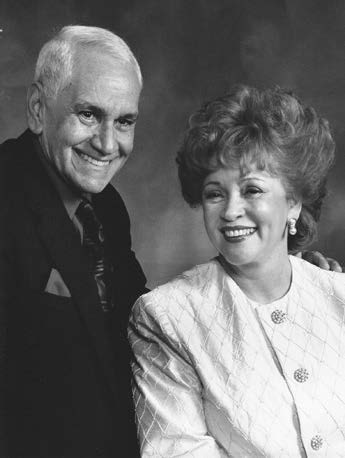
Married for 56 years, Drs. Pablo and Maria Pons came to the United States from the Dominican Republic to further their education and live, but they have never forgotten from where they came and the poor they left behind. Founders of Midwest Medical Mission, they have organized physicians, nurses, therapists and technicians from Ohio, Michigan and West Virginia, who have served tens of thousands in the Dominican Republic on a quarterly basis for 30 years.
Midwest Medical Mission — which at one time also made trips to Haiti — has grown to now include more than 25 physicians and surgeons and more than 40 nurses, therapists and technicians. The organization operates on an annual budget of less than $10,000 and each member of the group donates their time and pays their own travel expenses. Any monies raised goes for the purchase of medicines and transportation while in that country.
In addition to offering their technical expertise, volunteers for Midwest Medical Mission have facilitated the adoption of the charity by a number of service organizations including Rotary of Canton, Ohio. Because of MMM's work, Rotarians in that city recently purchased an ambulance for the Antonio Musa Hospital for the Poor in San Pedro de Macoris.
Midwest Medical Mission has also facilitated bringing more than 20 patients to the United States for complex surgeries not performed in the Dominican Republic. These surgeries — performed at The University of Toledo Medical Center, the Ohio State University Medical Center, the Cleveland Clinic and at the University of Michigan Medical Center — include corneal transplants for a boy blinded in an explosion as well as complex heart surgeries for seven children. Like all of their work, these services have been provided free of charge.
A graduate of the University of Santo Domingo, Dr. Pablo Pons completed his internship and residency at Salvador B. Gautier Hospital in that city. He then came to the United States where he completed a family practice residency at Halifax District Hospital in Daytona Beach, Fla., and a residency in obstetrics and gynecology at Toledo Hospital. A fellowship in high-risk obstetrics would follow at the Toledo Hospital. From 1970-2004, he worked in private practice as a family physician and in OB-GYN. He is a former chief of the OB-GYN Department at Riverside Hospital and was named a Paul Harris Fellow by Rotary International.
Since 1985, Dr. Maria Christina Pons has served as the executive director of Midwest Medical Mission. The holder of a doctorate in pharmacy and clinical sciences, also from the University of Santo Domingo, she has received many awards for her service. In 2008, Dr. Maria Pons was honored by then Dominican Republic President Leonel Fernandez with that nation's Humanitarian Award. Like her husband, Dr. Maria Pons is a Paul Harris Fellow of Rotary International.
Albert G. Roode, MD (posthumously)
Pibor, Sudan
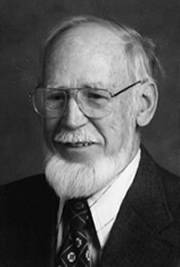
Albert Roode's direction in life was established by what he was told in Sunday School at age 13 in Donora, Penn. The story was of a Presbyterian medical missionary, Dr. Howard Buchanan, who was stationed in the South Sudan. He had accidentally infected his own eye while attempting to care for a child's serious eye infection, causing him to go blind and end his missionary career.
Barely a teenager, young Albert Roode vowed in Sunday School to become a physician and travel to the Sudan, where he would fill the vacancy left by Dr. Buchanan. What went unsaid was that no one in his family had ever been to college, much less medical school. Never mind that it was the depths of the Great Depression and that the Roode family barely had enough money to survive.
Not to be deterred, Albert took jobs as a common laborer. He then received a small scholarship followed by donations from 10 church members totaling $300, enabling him to enroll at Muskingum College in New Concord, Ohio. Accepted into Western Reserve Medical School, he received a letter requiring $100 to immediately secure his place. He was broke. Sweeping the halls of Muskingum College one night, he met the president of that institution. The man wrote a personal check on Roode's behalf for $100.
World War II delayed the dream of Dr. Roode, who served as a medical officer aboard the destroyer USS Quick. But when the war ended, he and the former Ruth Goehring and their young family set sail for Africa. As fate would again have it, the Roode family lived in the very home in Doleib Hill in the South Sudan that Dr. Buchanan had occupied 21 years earlier when he had his tragic accident.
In 1952, the Roodes moved to Pibor Post to serve the Murle people. Arriving via motorboat, they found no facilities, just brush and trees. For several months, Dr. Roode treated patients under a tree, while a single room grass hut was built that first served as the family home, and then — upon construction of a cement and stone home — as a clinic. Work then began on a permanent hospital.
Dr. Roode served the Murle people until 1964 when all Westerners were evicted by a fundamentalist government. He returned to Pennsylvania, where he worked at the Polk State School for those with mental disabilities and later in an emergency room. Despite two civil wars that engulfed his adopted homeland, Dr. Roode sent money to Murle children, paying for their education in Kenya.
Given the native name "Lukurnyang" on behalf of thousands of Murle patients he treated, Dr. Roode, passed away in 1994. He is still fondly remembered by them more than 50 years later, thus exemplifying the impact a solitary life, well-lived, can have on planet earth.
Fittingly, his sons, Peter and Philip, both became physicians. Dr. Peter Roode is now attempting to rebuild the Pibor hospital his father built, which was badly damaged in the civil wars.
Lawrence V. Conway Distinguished Service Award
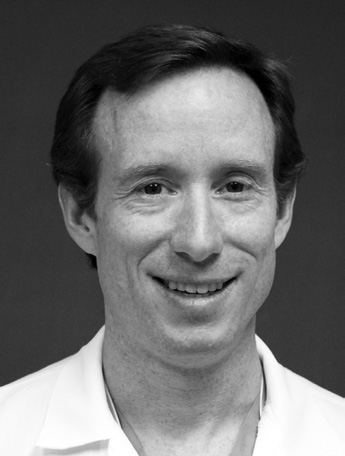
Scott McLean, MD, PhD
Ann Arbor, Michigan
Todd Brickman, MD, PhD
Metairie, Louisiana
Drs. Brickman and McLean are being honored for founding Students for Medical Missions at what is now The University of Toledo's College of Medicine and Life Sciences.
As MD/PhD students working in the Department of Pharmacology in 1998 at what was then known as the Medical College of Ohio, the pair decided to start Students for Medical Missions to help raise awareness about the medical mission experience and create a forum for students to become involved with and participate in medical missions. Their outreach stemmed from a clinical rotation that McLean had with Dr. Richard Nelson in the Department of Otolaryngology-Head and Neck Surgery. Dr. Nelson had planned a mission to Peru, and McLean participated in that trip. When McLean returned, he shared his excitement with Brickman.
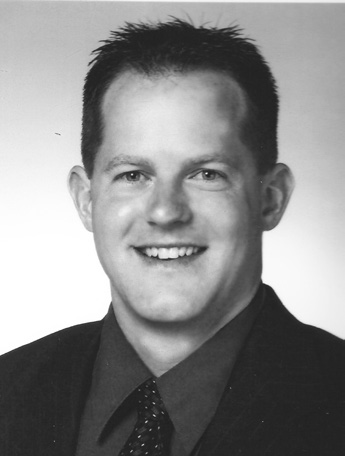
Students for Medical Missions formed when the pair attended an MCO student organization fair in September of 1998. More than 100 students – including those in allied professions – signed up to join their group. Soon afterward, Brickman and McLean were contacted by then Toledo Mayor Carty Finkbeiner, who requested their assistance in organizing a relief mission to Honduras in the wake of Hurricane Mitch.
Media coverage of their work and Students for Medical Missions resulted in community philanthropic support, which subsequently allowed additional students to improve the human condition while gaining hands-on experience in some of the most underserved parts of the world. Their efforts also formalized the process of health-care students applying for missionary work, making the process streamlined. The new organization was advised by Dr. Richard Paat, a 2013 inductee into the Medical Mission Hall of Fame. Dr. Paat remains as the adviser to Students for Medical Missions.
Now an assistant professor in the Department of Otolaryngology-Head and Neck Surgery at the Louisiana State University School of Medicine, Dr. Brickman completed bachelor's degrees from The University of Toledo in chemistry and exercise science in 1993. He earned his medical degree from MCO in 2002 and his PhD in biomedical sciences from UT in 2007. A surgical intern at Strong Memorial Hospital at the University of Rochester Medical Center, he also completed his otolaryngology residency there in 2007. In 2007 and 2008, Dr. Brickman served as a microvascular/head and neck fellow at Saint Louis University/Washington University School of Medicine and Saint Louis University Hospital/Barnes Jewish Hospital.
Now a clinical assistant professor in the Department of Otolaryngology-Head and Neck Surgery at the University of Michigan, Dr. McLean completed a bachelor's of science degree at the University of Michigan in 1991 and his MD/PhD at MCO in 1999. He served an internship in surgery at the Mayo Clinic in Rochester, Minn., in 2000, and finished his residency in otolaryngology at the Mayo Clinic in 2004. A fellowship in the Cranial Base Program at the University of Michigan followed in 2005.


